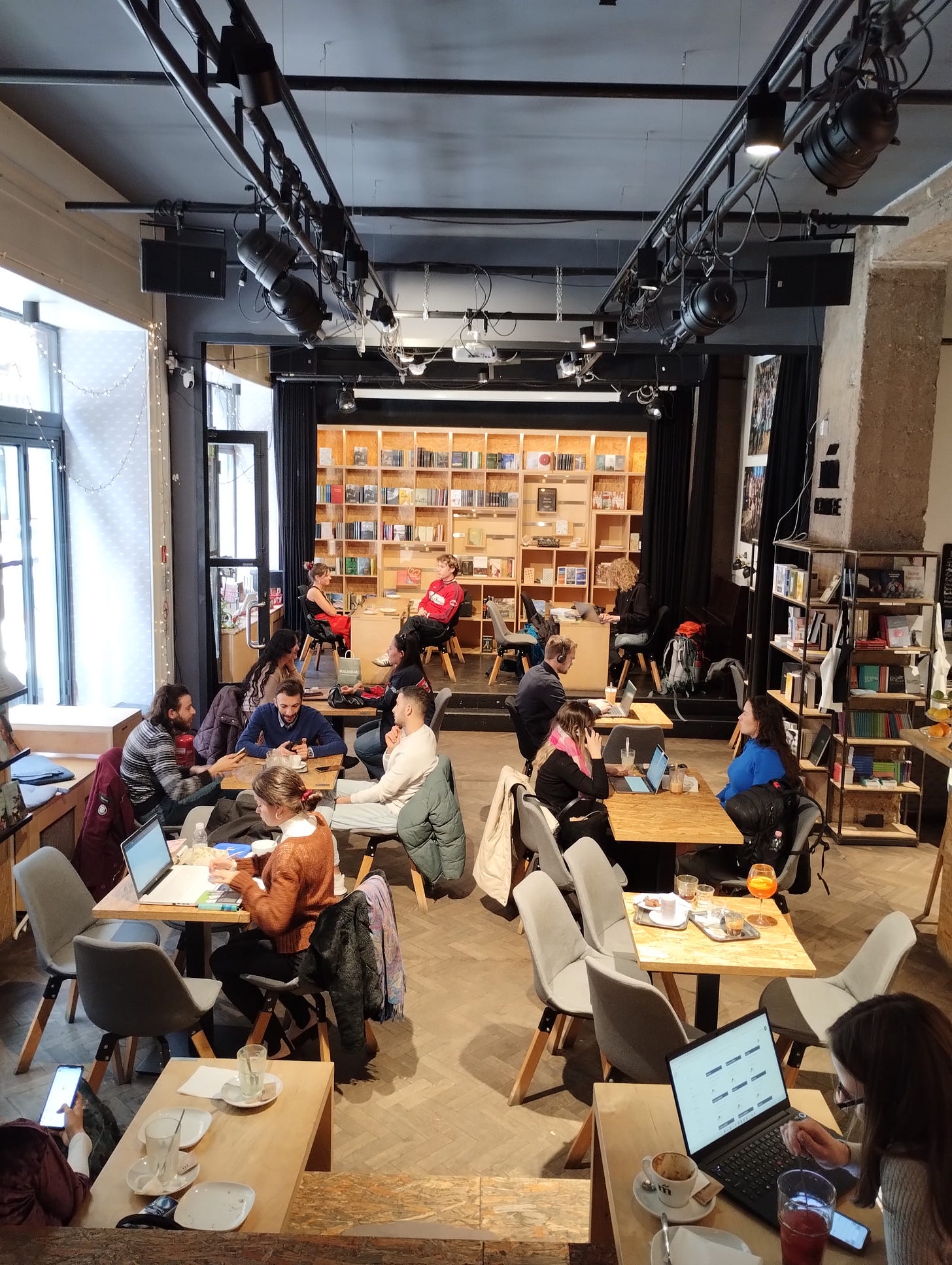The advantages of working at a third space
Half of the remote workers spend some of their working hours in cafes and other places
The year was 2015. I had become a freelancer. In the first month, I moved to a different apartment in the same building. The internet service provider took two months to install my internet for some unexplainable reason.
Not having internet at home was terrible, but it brought an unexpected and positive side effect. It forced me to work in cafes or public spaces every day. And I discovered a true passion for third space working —now, as a digital nomad, I intend to make the most of it.
I can't describe the feeling of well-being it provokes me. The environment inspires me, makes me productive, and helps me concentrate. So many strangers sharing the same experience motivates me, "c'mon, c'mon, keep going, keep going."
The cafe is a great way to combat the loneliness that working from home can cause. Right now, I am in a cafe in Budapest surrounded by an American girl and a Belgian guy (presuming from the jackets they are wearing), and people I would say are Chinese, Indian, Hungarian, and Iranian, while Coldplay's Yellow plays in the background. Isn't it fascinating?
Cafe in Budapest. March, 2023. Photo: Mateus Camillo/No Direction Home
Cafes provide incredible networking opportunities. It happened to me in 2015 in São Paulo. I always met some friends of a friend who were founding a startup. They invited me to produce content for their website. The money was a great source of additional income.
In 2022, in a cafe in Belo Horizonte, I met two girls who had a similar project to mine of writing their family history. I heard them talking about family memories and chatted with them. We spent over an hour sharing experiences.
Nowadays, most cafes are designed to receive remote workers. Good internet, pleasant music, suitable furniture, a cool environment, outlets available at almost every table, and attendants who won't kick you out if you have been there for a while.
The more remote worker-friendly a cafe is, the better it is for the place. I'm not the only one saying it.
According to research conducted by the Swinburne University of Technology in Australia, third spaces working are predicted to become the standard in 2023. The researchers analyzed how workers use third spaces, such as cafes and other similar locations.
The researchers cite OpenTable data, indicating that approximately half of the remote workers spend some of their working hours in cafes and other third spaces like libraries, pubs, parks, and coworking spaces.
On average, people who work in third places do so 2-3 times per week, for 15 minutes to 4 hours, and spend between $4-$30 per visit.
Although they typically work alone, small meetings with a group size of 2-3 individuals are sometimes held. The most common work activities outside of home and office include deep work, creative tasks, reading, administrative work, paperwork, emailing, small meetings, and informal phone calls. The probability of continuing to use third places for work in the future was rated at 98%.
Five reasons for working in a third space:
Achieving a work-life balance is one of the most significant advantages of third space working. It enables to break the monotony of typical work environments and work in an atmosphere that suits work style, improving well-being.
Third space working also may increases productivity by minimizing distractions often accompanying working from home or in a traditional office environment. It can help focus on tasks and complete them more efficiently.
Third spaces offer a stimulating environment that can help foster creativity and develop innovative ideas.
Third spaces provide individuals with networking opportunities that they may not otherwise have. By interacting with like-minded professionals from different fields and industries, individuals can expand their network and gain new business partnerships or career opportunities.
Third spaces offer a cost-effective solution for professionals who do not need a dedicated office space. These workspaces offer flexible plans, allowing workers to pay only for the time they use, reducing the expenses of renting a traditional office space.



